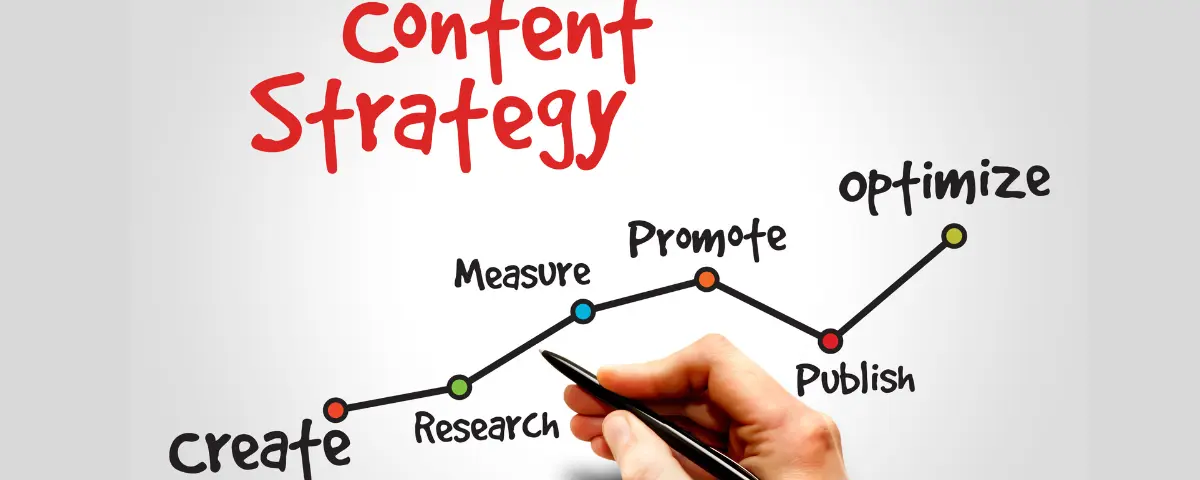Creating a successful digital marketing plan is essential for anyone looking to navigate the complexities of online promotion and achieve their business goals.
Many individuals struggle with the overwhelming options available in digital marketing, leading to confusion and wasted resources.
Without a clear strategy, your marketing efforts can easily fall flat, leaving you frustrated and unsure of how to proceed.
Imagine pouring time and money into campaigns that don’t deliver the results you need. It will affect the goals and objectives you’ve set for that specific campaign.
The digital landscape is competitive, and without a well-structured plan, you risk missing out on valuable opportunities to connect with your audience.
if you want to create a marketing plan that will not fail, you can register for our comprehensive digital marketing course to learn how to reach your target audience and drive results.
In this article, you will learn how to create a digital marketing plan, from defining your goals to selecting the right channels and measuring your success.
So let’s get started,
What is a Digital Marketing Plan?

A digital marketing plan is a comprehensive document that outlines how you will use various online channels and tactics to connect with your target audience, build your brand, and ultimately drive more sales or achieve your business objectives.
Get 50% Discount to Master ALL Aspects of Digital Marketing That Can Earn You $2,500 - $5,000 a month (Even if you are a complete beginner!)
Our students that intentionally implement what they learn from our digital marketing course make back the entire course fee within a single month or more after completing our course because our course gives them many income generating options with unlimited earning potential with no age or location barrier. The best part is no technical skills are required.
An opportunity to change your lifestyle and make money working from anywhere in the world. The results our students get from our digital marketing course prove this could be applied to any market or country and that it is designed for any skill level and work background.
*By signing up, you agree to our privacy policy and terms of service.
It also serves as a roadmap, detailing the specific actions needed to reach your target audience through various digital channels, such as social media, email, and search engines.
By having a well-structured digital marketing plan, you can optimize your resources and increase your chances of success in reaching your business objectives.
Marketing Plan vs. Marketing Strategy
While these terms are often used interchangeably, they serve distinct purposes in guiding your marketing efforts. A marketing plan and a marketing strategy are essential for effective business growth.
So what is a marketing strategy?
A marketing strategy is the overarching framework that defines why you are pursuing specific marketing goals. It outlines your brand’s mission, the target audience you want to reach, and how you intend to position your product or service in the market.
Typically, it answers questions like:
- What problem does your offering solve?
- Who benefits from it?
- How can I differentiate your brand from competitors?
A well-defined strategy sets the stage for all your marketing activities and ensures that everyone on your team is aligned with your business objectives.
On the other hand,
A marketing plan is more tactical and focuses on how you will execute your strategy. It details the specific actions, timelines, budgets, and metrics you will use to achieve your marketing goals.
This includes outlining campaigns, selecting channels like (social media or email), and determining how you will measure success.
So if you have a marketing plan, you need to revisit it regularly to adapt to the changes in the market conditions and track progress.
Why is a Marketing Plan Important?
A marketing plan is essential for any business, whether you’re a startup or an established company. Because it acts as a roadmap that guides your marketing efforts and helps you navigate the complexities of reaching your target audience.
Some reasons for having a marketing plan include:
1. Clarity and Focus
A well-structured marketing plan provides clarity on your goals and objectives. It helps you define what you want to achieve, be it increasing brand awareness, generating leads, or boosting sales.
For instance, if your goal is to increase brand awareness by 30% within six months, your team can focus their efforts on targeted social media campaigns and influencer partnerships. With clear targets in place, you can achieve these goals by reducing wasted time and resources.
2. Better Resource Allocation
A good marketing plans outline the budget and resources needed for each campaign or initiative. When you plan, you can allocate your financial and human resources more effectively, ensuring that you invest in the right channels and strategies that yield the best results.
3. Measurement and Accountability
During your planning stage, you need to establish key performance indicators (KPIs) that you will use to track progress and measure the effectiveness of your marketing efforts through the metrics you set for the campaign.
This data-driven approach allows you to make informed decisions, adjust strategies when necessary, and hold your team accountable for their performance.
4. Adaptability to Change
In today’s world, the market conditions change rapidly. A marketing plan not only outlines your current strategies but also prepares you to adapt to new trends, customer behaviours, or competitive pressures.
So you have to review and update your plan regularly, so you can stay agile and responsive to the evolving landscape.
5. Communication
A marketing plan serves as a communication tool within your organization. It ensures that everyone from executives to team members understands the marketing direction and their role in achieving it.
For example, if the plan outlines a new product launch strategy, the sales team can prepare their pitches while the marketing team develops promotional materials. This alignment fosters collaboration and encourages a unified approach to reaching your goals.
How to Create a Digital Marketing Plan: 9 Steps
A digital marketing plan is like your roadmap for navigating the online world and reaching your business goals.

- Define Your Marketing Goals and Objectives
- Build buyer personas to define your ideal audience
- Conduct a Competitive Analysis and Market Position
- Conduct a SWOT Analysis
- Determine Your Digital Marketing Budget
- Choose Your Digital Marketing Channels
- Create Your Digital Marketing Strategies and Tactics
- Create a Marketing Calendar
- Measure the Results and KPIs
Define Your Marketing Goals and Objectives
The first step in creating an effective digital marketing plan is to define your marketing goals and business objectives. Start by aligning your marketing goals with your overall business objectives.
For instance, if your business aims to increase revenue by 20% this year, your marketing goal could be to generate 50 new leads each month.
You can use the SMART framework (Specific, Measurable, Achievable, Relevant, and Time-bound) to ensure clarity and focus.
- Specific: Clearly state what you want to achieve. For example, “If you aim to generate 50 new leads each month through targeted online advertising.”
- Measurable: Define how you will measure success. “We will track the number of leads generated each month using our CRM system.”
- Achievable: Ensure the goal is realistic given your resources. “Based on our current lead generation efforts and budget, generating 50 new leads per month is achievable.”
- Relevant: Connect the goal to broader business objectives. “Generating these leads directly supports our aim to increase revenue by 20% this year.”
- Time-bound: Set a deadline for achieving the goal. “We will achieve this monthly lead generation target by the end of each month throughout the year.”
This alignment will help provide direction and also help you prioritize your marketing efforts, making it easier to track progress and adjust strategies as needed.
Build buyer personas to define your ideal audience
Buyer personas are fictional representations of your ideal customers based on real data and market research. They help you identify the needs, behaviours, and pain points of different segments within your audience.
For example, Start by gathering data on your existing customers, including demographics, interests, and pain points. Next, create detailed profiles that represent different segments of your audience, such as age, profession, and buying behaviour.
For example, one persona might be a busy professional seeking time-saving solutions, while another could be a budget-conscious student looking for affordable options.
When you understand these personas, you can craft targeted messages and strategies that resonate with each group, ultimately enhancing engagement and driving conversions.
Conduct a Competitive Analysis and Market Position
A good competitive analysis helps you to identify your main competitors, so you can examine their strengths, weaknesses, pricing, and marketing strategies.
It also helps you look at their online presence, social media activity, and content strategies to see what works for them.
E.g. What are they doing well, and where are they falling short? This insight helps you spot opportunities to differentiate your brand.
Once you know the competitive landscape, assess your market position. Ask yourself, “What makes my business unique?”
Additionally, assess how your brand is perceived compared to competitors. When you define your unique selling proposition (USP), it allows you to craft marketing strategies that highlight your strengths and position your brand for success.
Conduct a SWOT Analysis
A SWOT analysis helps you understand your brand’s strengths, weaknesses, opportunities, and threats.
To get started, you need to start by identifying your strengths and what sets your brand apart. It could be your excellent customer service or unique products.
Next, examine your weaknesses, it could be limited access to resources or outdated technology.
Then, explore Opportunities in the market, from your competitor analysis you can identify emerging trends or unmet customer needs that you can capitalize on.?
Finally, consider external threats, such as rising competition or economic shifts and changing regulations that could impact your business.
This comprehensive analysis provides valuable insights that can inform your digital marketing strategies, helping you leverage strengths and opportunities while addressing weaknesses and threats effectively.
Determine Your Digital Marketing Budget
A digital marketing budget is a strategic document that outlines the financial resources allocated for various marketing activities over a specific period.
It details the actions and strategies to be implemented in your campaigns, ensuring that businesses can efficiently manage their financial resources while pursuing their marketing objectives.
To get started, assess your overall business goals and how much you can realistically allocate to marketing efforts. Consider factors such as past marketing performance, expected return on investment (ROI), and industry benchmarks.
For example, if a company aims to increase revenue by 20% within the year, its digital marketing budget might include allocations for social media advertising, content creation, SEO efforts, and email marketing campaigns.
A good rule of thumb is to invest 5-10% of your revenue into marketing, depending on your growth objectives.
This budget serves as a guide to prioritize spending, track expenses, and measure the return on investment (ROI) for different marketing activities, ultimately supporting the company’s growth and success in the digital landscape.
Choose Your Digital Marketing Channels
There are different digital marketing channels that you can use to reach your target audience effectively.
Choosing the right channels depends on where your audience spends their time online, whether it’s social media platforms like Facebook and Instagram, search engines like Google, or email.
Each channel has unique strengths so you need to how to take advantage of each channel to achieve your see goals.
Common Options include:
- SEO
- Pay-per-click (PPC) advertising
- Content marketing
- Email marketing
- Social media marketing
- Influencer marketing
For example, If your goal is to increase brand awareness, social media platforms may be more effective, SEO can also help you improve organic search visibility, while you can use email marketing to nurture leads over time.
Conversely, if you’re looking to drive immediate sales, pay-per-click (PPC) advertising could be the better choice. So you need to assess what you can afford and prioritize channels that offer the best return on investment.
Once you’ve chosen your channels, make sure the platforms align with your goals and allow you to connect with your audience in meaningful ways.
Create Your Digital Marketing Strategies and Tactics
When you are creating your marketing plan, you need the right strategies and tactics for your plan to come to life. You need to start by clearly defining your goals, that is what do you want to achieve?
For instance, if you aim to boost brand awareness on social media, consider creating engaging content like videos and infographics.
If lead generation is a priority, focus on email marketing campaigns that offer valuable resources in exchange for contact information.
Once your strategies are set, break them down into actionable tactics, this could include setting a content calendar for regular posts, utilizing SEO best practices to improve website visibility, or running targeted ads to reach specific demographics.
Your tactics should support your overall strategy, helping you move closer to achieving your business objectives.
Create a Marketing Calendar
Creating a marketing calendar will help you keep your digital marketing efforts on track.
For example, let’s say your brand offers online digital marketing courses and certifications. You need to start by identifying key dates such as product launches, holidays, and industry events that align with your marketing goals.
The calendar could include weekly blog posts showcasing student success stories, monthly newsletters highlighting upcoming courses, and targeted ads for enrollment periods.
So make sure you align your content with critical dates like semester starts or special webinars, to ensure a consistent marketing flow.
This approach helps to engage their audience, promote courses effectively, and stay organized while driving enrollment throughout the year.
Measure the Results and KPIs
Measuring your results is crucial in determining whether your business was successful with your efforts. So you need to track the results of your marketing campaigns so you can see how well they are performing.
To do that successfully, define Key Performance Indicators (KPIs) that align with your goals, such as website traffic, conversion rates, or social media engagement.
When you have a set of KPIs you want to track, it will be easy for you to define whether you reached the goals you set or not.
If you aren’t meeting your goals, it provides you with the opportunity to restructure your campaigns to drive better results. You can use analytics tools like Google Analytics or social media insights to track these metrics regularly.
For example, if your email open rates are low, consider testing different subject lines or send times. If your engagement rates on social media posts are declining, analyze the types of content you’re sharing.
If your engagement rates on social media posts are declining, analyze the types of content you’re sharing.
When you continuously measure and adjust your strategies based on these insights, you can optimize your marketing efforts and achieve better results over time.
Component of a Digital Marking Plan

Content marketing
Content marketing is a powerful component of your digital marketing plan. It involves creating and sharing valuable content, such as blog posts, videos, and infographics, to attract and engage your target audience. When you provide helpful information, you can establish your brand as an authority in your field, build trust with potential customers, and ultimately drive conversions.
Email marketing
Email involves sending targeted messages to your audience to nurture relationships and drive conversions. It involves building an email list so that you can share valuable content, promotions, and updates with your subscribers. Personalizing your emails and segmenting your audience can improve engagement, making it a powerful tool for increasing customer loyalty and boosting sales.
Advertising
This is a crucial component of a digital marketing plan that helps you reach a wider audience and promote your products or services effectively. This can include various forms of online ads, such as pay-per-click (PPC), display ads, social media ads, and video ads. When you target specific demographics and interests based on your research, you can ensure your message reaches the right people at the right time, driving traffic and increasing brand visibility effectively.
Search Engine Optimization (SEO)
SEO is the process of enhancing your website to improve its visibility on search engines like Google. It involves optimizing elements such as keywords, meta tags, and content quality, so you can attract more organic traffic. Effective SEO not only increases your online presence but also builds credibility, helping potential customers find you when they search for relevant information.
Social Media Marketing
It is the use of platforms such as Facebook, Instagram, Twitter, and LinkedIn to connect with your audience Start by sharing engaging content, responding to comments, and running targeted ads to build brand awareness and foster customer loyalty. This interactive approach will help drive traffic to your website and also create a community around your brand.
Video Marketing
Video marketing involves creating engaging video content to promote your brand, products, or services. Whether through tutorials, testimonials, or entertaining clips, videos capture attention and convey messages effectively. You can share videos on platforms like YouTube and social media to increase engagement, boost conversions, and enhance your brand’s visibility in a crowded digital landscape.
To learn about the various components of digital marketing, you can register to take our digital marketing course to gain a deep understanding of various digital marketing strategies, and tactics you can implement to achieve your marketing goals
FAQ about creating a digital marketing plan
Why is it important to have a digital marketing plan?
Having a digital marketing plan is crucial because it helps you organize your initiatives, align your team towards common goals, and efficiently allocate resources. Without a clear plan, you risk wasting time and money on ineffective strategies and may miss opportunities to connect with your audience.
What should be included in a digital marketing plan?
A comprehensive digital marketing plan should include your marketing goals, target audience analysis, competitive analysis, budget allocation, selected digital channels, specific tactics for each channel, and a timeline for implementation. Additionally, it should outline how you will measure success through key performance indicators (KPIs).
Finally
Creating a digital marketing plan is essential for any business looking to thrive in today’s competitive landscape.
You need to follow a structured approach that includes setting clear goals, identifying your target audience, and selecting the appropriate digital channels, so you can effectively connect with your customers.
It’s also important to develop specific strategies and tactics tailored to your unique business needs while remaining flexible to adapt to changing market conditions.
You can measure your results through key performance indicators (KPIs), which enable you to assess the effectiveness of your efforts and make informed adjustments as needed.
To learn how to create an effective digital marketing plan for your business, you can check our comprehensive digital marketing course to learn about different strategies you can use to achieve your set goals
A well-crafted digital marketing plan will not only provide direction but also help optimize your resources, ensuring that every marketing dollar spent contributes to achieving your overall business objectives.
More resources
What Does A Digital Marketing Consultant Do (and How To Become One
10 Effective Online Marketing Strategy To Target Your Audience
Digital Marketing Defined: 9 Amazing Ways to Make Money Online + Proof
What is Digital Marketing? A Complete Step by Step Guide For Newbies
How to Improve Your Digital Marketing Skills For Career Growth


